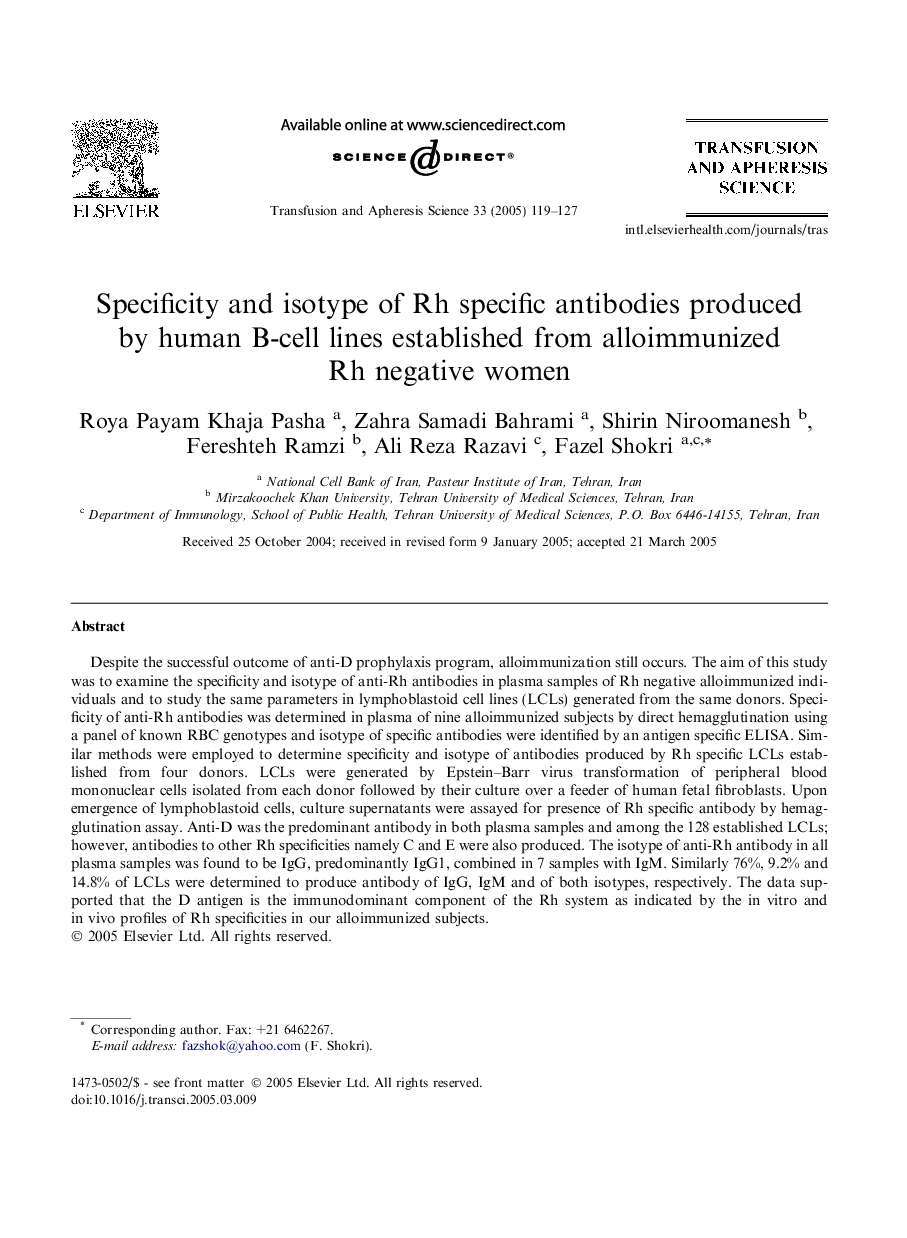| Article ID | Journal | Published Year | Pages | File Type |
|---|---|---|---|---|
| 9258848 | Transfusion and Apheresis Science | 2005 | 9 Pages |
Abstract
Despite the successful outcome of anti-D prophylaxis program, alloimmunization still occurs. The aim of this study was to examine the specificity and isotype of anti-Rh antibodies in plasma samples of Rh negative alloimmunized individuals and to study the same parameters in lymphoblastoid cell lines (LCLs) generated from the same donors. Specificity of anti-Rh antibodies was determined in plasma of nine alloimmunized subjects by direct hemagglutination using a panel of known RBC genotypes and isotype of specific antibodies were identified by an antigen specific ELISA. Similar methods were employed to determine specificity and isotype of antibodies produced by Rh specific LCLs established from four donors. LCLs were generated by Epstein-Barr virus transformation of peripheral blood mononuclear cells isolated from each donor followed by their culture over a feeder of human fetal fibroblasts. Upon emergence of lymphoblastoid cells, culture supernatants were assayed for presence of Rh specific antibody by hemagglutination assay. Anti-D was the predominant antibody in both plasma samples and among the 128 established LCLs; however, antibodies to other Rh specificities namely C and E were also produced. The isotype of anti-Rh antibody in all plasma samples was found to be IgG, predominantly IgG1, combined in 7 samples with IgM. Similarly 76%, 9.2% and 14.8% of LCLs were determined to produce antibody of IgG, IgM and of both isotypes, respectively. The data supported that the D antigen is the immunodominant component of the Rh system as indicated by the in vitro and in vivo profiles of Rh specificities in our alloimmunized subjects.
Keywords
Related Topics
Health Sciences
Medicine and Dentistry
Hematology
Authors
Roya Payam Khaja Pasha, Zahra Samadi Bahrami, Shirin Niroomanesh, Fereshteh Ramzi, Ali Reza Razavi, Fazel Shokri,
